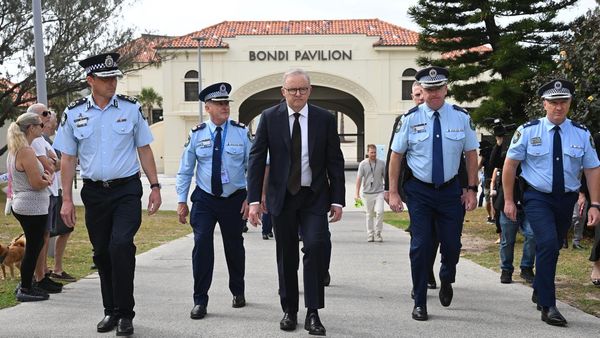
Nigerians are getting ready to vote for a new president Saturday in an unprecedented race between three frontrunners, including - for the first time - a candidate who is not from one of the two main parties.
President Muhammadu Buhari is stepping down after eight years running Africa's most populous country, becoming only the second incumbent in Nigerian history to leave after serving the two terms allowed in the constitution.
Three candidates are leading in opinion polls: former Lagos governor Bola Tinubu, 70, of Buhari’s All Progressives Congress, or APC; Atiku Abubakar, 76, of the main opposition Peoples Democratic Party (PDP); and Peter Obi, 61, who defected from the PDP to join the Labour Party.
Obi’s rise in the polls has upset the APC and PDP's dominance in Nigerian politics, and his slick social media campaign has been designed to attract the votes of younger people who are tired of traditional politics dominated by old men.
Do you know the delimitation data for #NigeriaDecides2023 election?
— INEC Nigeria (@inecnigeria) February 22, 2023
✓ 18 Political Parties
✓ 93,469,008 Registered Voters
✓ 1,491 Electoral Constituencies
✓ 774 Local Government Area
✓ 8,809 Registration Areas/Wards
✓ 176,846 Polling Units
✓ 15,331 Contestants pic.twitter.com/8xvqU4Wy7z
Election run-off?
Obi's candidacy raises the possibility of a run-off three weeks after the election for the first time since the end of military rule in 1999.
But Nigerian electoral law makes a run-off unlikely, as the winning candidate needs only a simple majority, as long as he receives 25 percent of the vote in at least two thirds of Nigeria’s 36 states.
Turnout will be an issue, as insecurity – including Islamist violence in the northeast – could make voting impossible for many of the 93.4 million registered voters.
The election will also be coloured by a sudden cash shortage at banks, after the central bank ordered old naira currency notes to be replaced by new bills to curb corruption and inflation.
This adds to frustrations with Buhari's government as people struggle to shop and travel to work.
Big task for new president
Whoever wins the election will inherit a range of security and financial problems, including Islamist violence and banditry in many parts of the country, high unemployment and influation, and systemic corruption that deters investment, on top of the cash shortages.
Nigerian elections have often been marred by violence, political and ethnic tensions as well as logistical problems.
In 2019, the Independent National Electoral Commission (INEC) delayed voting for a week, hours before polling stations opened.
Despite warnings about violence from armed groups, and fuel and cash shortages, INEC's chief said Saturday's vote will go ahead on time, with polls opening at 8:30 am local time, and closing at 2:30 pm, with results expected from Sunday onwards.
(with newswires)







